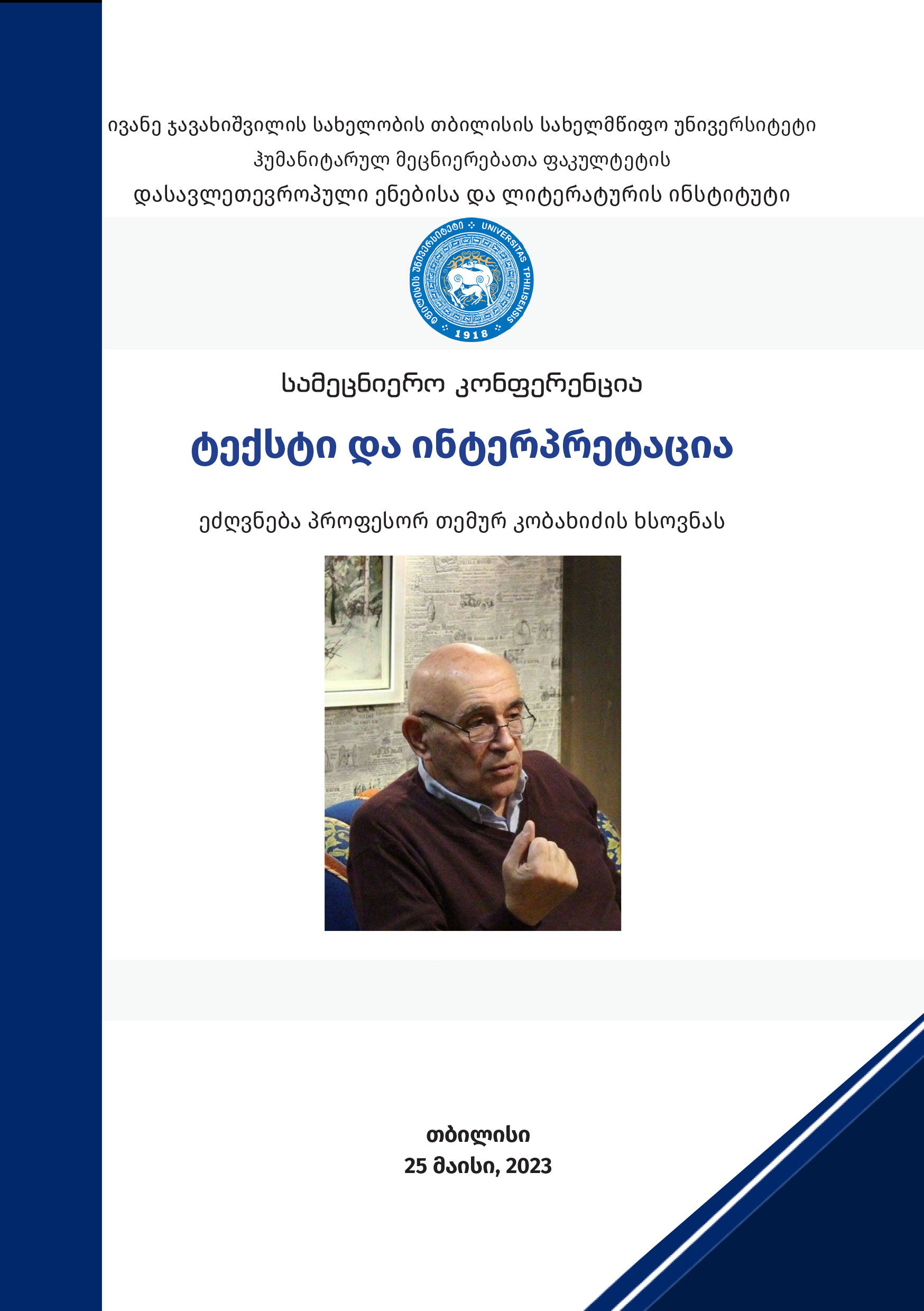Political Discourse in Modernist and Meta-Postmodernist Irish Drama
DOI:
https://doi.org/10.55804/jtsu-2960-9461-2023-6Keywords:
Political Discourse, Post-Modernism, Meta-Postmodernism, Irish DramaAbstract
The role and place of political discourse in fiction is a complex and intricate problem. The attitude of scholars and the authors towards the extent to which political discourse is permissible in the literature is heterogeneous.
Various writers, like the famous Irish modernist writer James Joyce, believe that literature should be distant from politics, or as Gabriel Conroy, one of the characters in his short stories (The Dead) puts it, "Literature is above politics". However, Joyce contradicts this statement within the story by showing how literature is the medium of politics, for it has the power to incite change among its audience. Gabriel himself later uses the power of words in his toast to persuade those gathered together at his aunt’s dinner party to mourn the loss of the elder generation’s focus on “qualities of humanity, hospitality, of kindly humor” to the rising generation’s devotion to “new ideas and new principles”. Through such juxtaposition of ideas, Joyce shows us that literature is not above politics, but rather is the medium through which political ideas are best shared. Joyce used his skills in writing to express his disdain for English imperialism, which he saw as the main reason for the paralysis of Ireland.
Due to significant political cataclysms of the twentieth century, a strong political discourse emerged in modernist literature that has not slowed down even after the Second World War, in the post-modern era, but took a retrospective, diversified and new interpretation of political events.
The present paper aims to explore the political discourse in post-modernist and meta-postmodernist Irish literature, in particular the works of Flan O’Brien, Frank McGuinness and Owen McCafferty.
The emphasis on these three English-language writers of Irish descent is due to several factors: First of all, Ireland lost the vital tool necessary for any writer under British dominion: its language, so along with the political controversy the linguistic conflict itself became an important factor. Secondly, the plays Faustus Kelly (1943), Observing the Sons of Ulster Marching towards the Somme (1986) and Quietly (1986) all written in different time periods is a great chance to observe the dichotomy of changes that political discourse underwent in post-modernist and meta-postmodernist eras.
These three plays contain political elements; However, while Flann O'Brien makes a comic parodying of the Faust legend in which the chairman of an Urban Council makes a pact in order to secure advancement, McGuiness and McCafferty give a retrospect of the events from the First World War and The Troubles. These above-mentioned plays created at different times (O'Brien 1943, McGuiness 1985, McCafferty - 2012) gives us a chance to observe not only the development dichotomy of political discourse in Ireland from World War II onwards, but also the shift of changes in characters and events and the aims for making these alterations. The modern time Faust, chairman of an Urban Council, only wants career advancement and that is why he makes a pact, unlike the Faust, whom we had known previously. These newly created Faust bears resemblance with Kvarkvare Tutaberi by Polikarpe Kakabadze (a Georgian modernist playwright).
The Irish Faust is only obssesed with a career advacement, and althought like "Ivy Day in the Committee Room" by James Joyce the characters of the play somewhat get together while discussing world politica and rivals, but even this "unity" is a farce and shows the detachment and loss of communication between the characters. Thus, Flann O'Brien's attitude towards Irish politicans can be traced rather well in the play, and the close analysis shows how O'Brien blamed those in power for the situation in which Ireland had fallen. Frank McGuiness in "Observing the Sons of Ulster Marching Towards Somme" tells us the story of WW1 and the Battle of Somme, one of the deadliest battles in all of human history. The main character Kenneth Pyper gives his nostalgic flashback from the viewpoint of the only surviving soldier of the eight. The start of the terrible Battle of the Somme on July 1st, 1916 – is at the same time the anniversary of the Battle of the Boyne in 1690s. Both of these battles have a significant place in shaping Northern Ireland's unionist consciousness. Born and raised in Donegal Frank McGuinness, these events have played an important role in making him a playwright. Frank McGuinness' play shows how the fear that Irish identity would disappear in the trenches of the Great War, resulted into something totally different, and how in the muddy fields of the Somme, a young generation achieved a form of self-definition. The tension between Protestants and Catholics, Unionist and Nationalists, ethno-nationalist-religious struggle in Northern Ireland known as "The Troubles" becomes a main theme for McCafferty’s "Quietly" (2012) where Jimmy and Ian two Belfast men in their 50s, have arranged to meet for the first time to talk about the events of one day in 1974, when they were both 16. In those days one was the perpetrator, and the other the victim. They both tell their story from their own perspective. It's like history is repeating itself, as if nothing changes and it's cyclical? Unlike Flann O'Brien, both McGuinness and McCafferty write about true historical events, and while they were not present at those time, the impact that these events had on the country, and hence on their consciousness, is obvious.
References:
Joyce, James. Dubliners: New York: Viking Press, 1968
McCafferty, Owen. Quietly. London: Faber and Faber, 2012
McGuinness, Frank. Observe the Sons of Ulster Marching Towards the Somme. London: Faber and Faber, 1986.
NA gCOPALEEN, Myles [Flann O'Brien]. Faustus Kelly. Dublin: Cahill, 1943.

